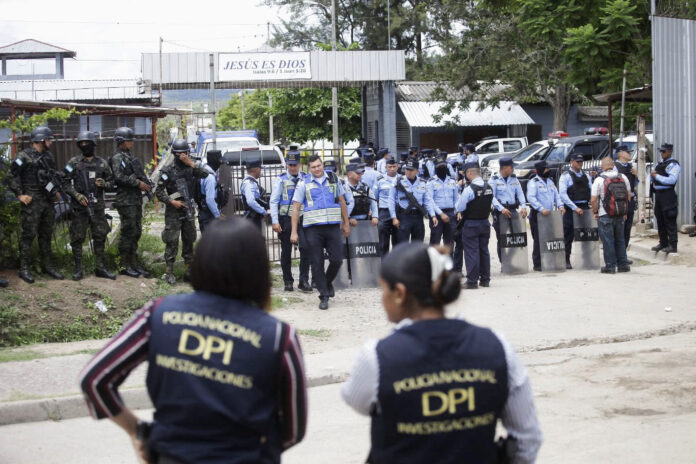Introduction:
In a horrifying incident that unfolded at the Tegucigalpa Women’s Prison in Honduras, a grisly riot resulted in the tragic loss of 41 lives. The rampage, which took place within the prison walls, has been attributed to the notorious Mara street gangs, casting a spotlight on the escalating security challenges faced by the nation’s penitentiary system. The harrowing event has sent shockwaves through the region, raising concerns about the safety and well-being of inmates and the urgent need for improved prison management.
Details of the Riot:
According to reports, the riot erupted when tensions between rival factions of Mara street gangs boiled over, leading to a violent clash within the prison’s confines. The situation quickly spiraled out of control, resulting in a chaotic scene marked by rampant destruction, fires, and unimaginable violence. The authorities’ efforts to regain control were hampered by the sheer scale and intensity of the conflict, leading to a devastating loss of life and a considerable number of injuries.
Impact on the Victims:
The victims of this senseless tragedy were primarily female inmates who found themselves caught in the crossfire of the warring gangs. These women, already confined to an environment known for its challenges and dangers, now face the unfathomable trauma of losing their fellow inmates, friends, and potentially their own sense of security. The incident highlights the vulnerability of women within the prison system, necessitating urgent measures to protect their rights, safety, and well-being.
Role of the Mara Street Gangs:
The Mara street gangs, notorious for their involvement in organized crime, have long plagued Honduras with their influence and criminal activities. This incident serves as a stark reminder of their power and the threats they pose to the nation’s stability. The gangs’ territorial disputes and internal rivalries have spilled over into the prison system, exacerbating the already strained conditions and contributing to a culture of violence.
Calls for Prison Reform:
The tragic events at the Tegucigalpa Women’s Prison have reignited calls for comprehensive prison reform in Honduras. Critics argue that the existing penitentiary system is ill-equipped to handle the challenges posed by powerful street gangs, resulting in overcrowding, inadequate security measures, and limited resources for rehabilitation. Efforts to address these systemic issues must prioritize the safety and dignity of inmates while also focusing on the prevention and intervention strategies necessary to break the cycle of gang violence.
Conclusion:
The horrific riot at the Tegucigalpa Women’s Prison in Honduras, which claimed the lives of 41 women, serves as a distressing reminder of the challenges faced by the nation’s penitentiary system. The involvement of Mara street gangs highlights the urgency of addressing gang-related issues and improving prison management to ensure the safety and well-being of inmates. As Honduras grapples with the aftermath of this devastating event, it becomes increasingly evident that comprehensive prison reform is necessary to restore order, protect the vulnerable, and foster an environment conducive to rehabilitation and reintegration.


